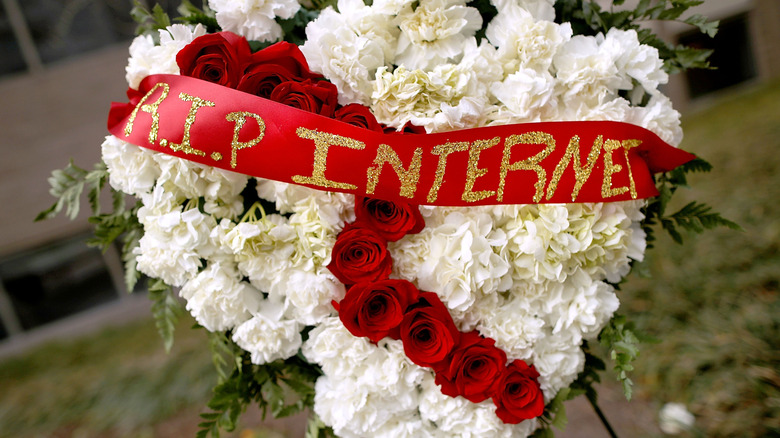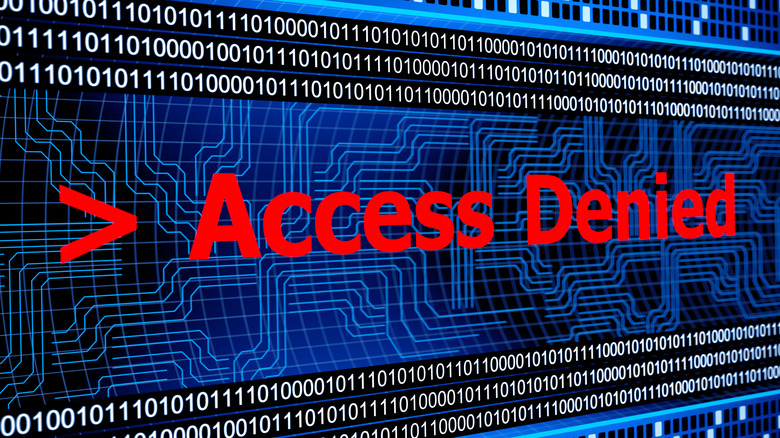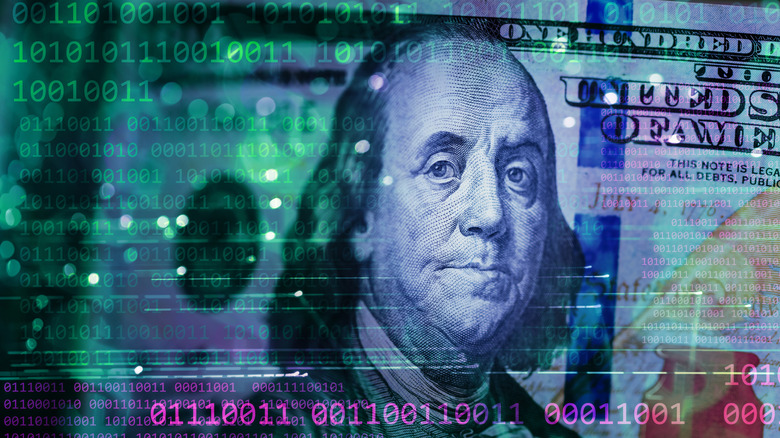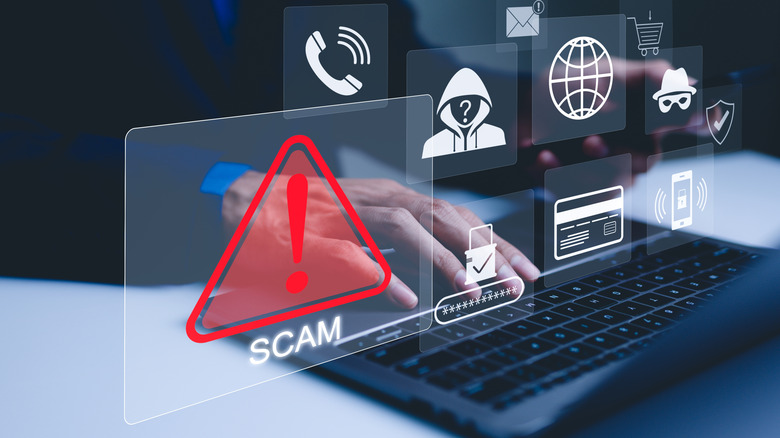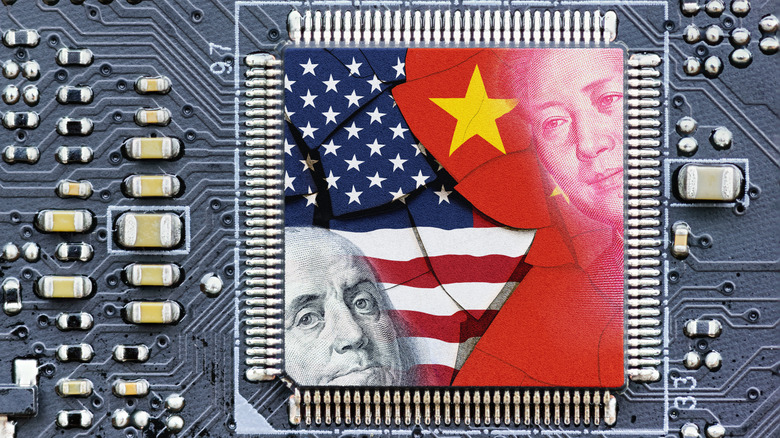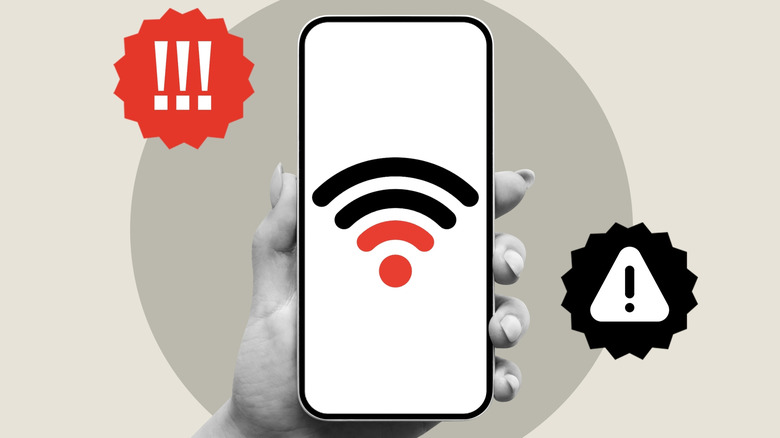8 Things That Could Happen Without Net Neutrality
The net neutrality debate is playing out like a broken record, except this time, the tune is your access to a fast and equitable internet. Less than a year after the FCC restored net neutrality, the U.S. Sixth Circuit Court of Appeals struck down the monumental regulations first established in 2015. The Trump administration, for its part, is unlikely to step in; with incoming FCC chair Brendan Carr — a former telecommunications lawyer — championing the decision as a "win for the country."
Before discussing the implications of the 6th Circuit Court's ruling, let's ensure we operate off the same definitions. As the FCC described it (in a web page that the current administration has since deleted), net neutrality means that broadband internet is treated as an "essential service." Under net neutrality, ISPs must meet the same standard of "just and reasonable" conduct as your utility providers. For simplicity's sake, think of this as protecting users' access to the internet, the "openness" of the internet — all websites can be accessed and hosted equally — and the availability and security of the connections.
The ruling returns the United States to a system of scattered protections with little to no cohesion, forming a sort-of Swiss cheese of internet regulation. Although at least 35 states have introduced net neutrality legislation, only four have passed comprehensive regulations. This projects a spotty landscape moving forward, as differing requirements may worsen an already widening gap in internet access. What might happen now that plans to restore net neutrality appear dead in the water? Let's take a look at the potential consequences.
A less open internet: Blocking, and the art of controlling traffic
Losing net neutrality directly reduces consumer freedom, allowing ISPs to employ several tactics that manipulate internet traffic. One such practice is "blocking," in which an ISP prevents access to a particular website or service. Over the past 20 years, major American ISPs like AT&T, Comcast, and Verizon have manipulated their networks to limit customers' access to competing websites and applications. Broadband providers have also been charged with influencing search engine results and redirecting internet traffic.
One example even saw Telus — Canada's second-largest telecom company at the time — blocking servers to interfere with labor protests. In losing net neutrality, the court has enabled practices that erode user trust and prevent the internet from operating as an open resource. In an era where political disinformation is rampant, AI deepfakes are steadily on the rise, and the average citizen is more beholden to their internet connection than ever, users must be able to trust in their ability to find the information they need without manipulation. And while, in isolation, many instances of blocking might seem trivial, the potential for misuse is daunting.
In this case, it's useful to see this history and ask what direction it may take in the future. Will ISPs stop their users from seeking out their competitors? How about preventing them from using websites that go against commercial or political interests? Ultimately, blocking — like many other issues posed by net neutrality — inherently asks us to determine what the internet is: an open public resource, or a commodity to be controlled by those providing it.
Surge pricing the web
A dire consequence of losing net neutrality is that it legalizes throttling. The easiest way to understand "throttling" is to think of it as similar to surge pricing, where an ISP reduces the quality of an internet connection (or cuts it entirely) until a user pays a premium. While ISPs claim that throttling is simply a means of managing nodal congestion, a 2019 study conducted by Northeastern University found that it was a pervasive and universal practice regardless of traffic levels.
Comcast, the United States' largest internet service provider, confirmed as much in 2014 when it rejected Netflix's proposal to ease the burden of its traffic on Comcast's systems by building content delivery networks (CDNs) free of charge. Instead, the ISP forced the streamer to pay an exorbitant content delivery fee. However, the practice of slowing down your internet connection is more than just a worry for download speeds, as ISPs have a history of throttling even the most essential public safety services.
For example, in 2018, Verizon throttled the Santa Clara Fire Department's broadband to 1/200th of its usual speeds while it fought a forest fire. The throttling occurred despite the fire department paying for unlimited data usage, and persisted until it agreed to double its payments. This example is a dangerous precedent of what a lack of regulations may bring, posing a frightening question: What happens when essential resources can be held hostage for monetary gain at critical moments?
In a time when California reels from historic wildfires, and states like North Carolina attempt to rebuild from Hurricane Helene, knowing that even disaster response agencies are no longer exempt from the maneuverings of internet service providers paints a bleak picture for the future reliability of the resource.
Whose really paying for the fast lane?
Another strategy to generate higher profits is paid prioritization, where ISPs charge websites for faster, high-volume service. In a vacuum, broadband providers' logic for this service is sound, with websites that demand more resources ultimately paying for it. The trickle-down effect of these "fast lanes" has major consequences that extend far beyond your streaming quality.
Functionally, internet bandwidth operates in a zero-sum environment: To increase the speed of one website, an ISP must proportionally decrease another's, creating broadband gaps that enable large companies to literally speed by their less affluent competitors. For smaller companies, an internet without net neutrality resembles a gladiator battle where even the arena in which they are competing is rigged against them. Another major concern with paid prioritization is who ultimately pays the bill. Unfortunately, the answer might be the consumer.
The most obvious example of this is streaming. Over the past year, streaming costs have risen for consumers, with companies like Netflix, Max, Peacock, Paramount, and Disney+ all announcing price hikes despite seeing increased profits. And while these price increases are due in large part to streamers shifting their focus from subscription growth to profit margins, they still pose a difficult question for consumers: What happens when a streamer's profit margins drastically lessen?
In that case, the recent court case has a much greater impact than many want to admit. According to some experts, the recent court ruling could cost Netflix nearly $1 billion. While this may represent only a fraction of the overall costs for streamers — Netflix's 2025 budget is a whopping $18 billion — it will surely enter the equation when your favorite platform reviews its subscription prices.
A less private connection in the era of big data
An under-discussed result of losing net neutrality is the potential for a shift in how ISPs manage customer data. As stated above, the court ruling overturns the stipulation that broadband providers are beholden to the "just and reasonable" rules of common carriers. Functionally speaking, this means that the federal government can no longer hold ISPs to the same legal standard for tracking, storing, and using customer data as they do phone companies. Under net neutrality rules, the FCC not only required ISPs to protect customer proprietary network information (CPNI), but barred them from using it without consent. Without these regulations, the FCC loses much of its teeth in the fight to protect consumer data.
Some critics, however, noted that net neutrality regulations also jeopardized user privacy by mandating that ISPs comply with federal surveillance statutes like CALEA, ECPA, and FISA. As the Electronic Privacy Information Center (EPIC) pointed out, these requirements not only enabled undue government surveillance, but also jeopardized the security of broadband networks by mandating backdoors that potentially exposed users to nefarious actors.
This juxtaposition paints a complex picture of the future of consumer data. In an era where data is more valuable than ever, ISPs and regulators must address these concerns by working together to protect the proprietary information of citizens at all costs. Unfortunately, as you'll see below, the dissolution of net neutrality regulations might do more to complicate the issue than resolve it.
A complicated cybersecurity debate
Dissolving net neutrality reduces regulators' ability to address cybersecurity issues. For one thing, the FCC relied on net neutrality's security, maintenance, disaster preparedness, and information-sharing requirements to ensure broadband providers promptly reported and fixed internet outages and security breaches. It also gave federal regulators more power to assist broadband providers in recovering from natural disasters. This is not to say that losing net neutrality inherently dooms disaster response, but it removes one of the major pathways through which cooperation can occur.
From a threat neutralization perspective, some argue that net neutrality does more harm than good, as limits on tactics like throttling, blocking, and traffic prioritization hinder an ISP's ability to effectively combat cyberattacks. However, net neutrality advocates posit that gutting regulations enables ISPs to infringe upon their user's security options. With a documented history of thwarting consumers' access to competing products, it's not unreasonable to wonder if such tactics could now apply to security tools like VPNs, proxies, and anti-malware software.
Another argument is that net neutrality prevented ISPs from accidentally exposing their customers to cyberattacks by manipulating the websites they visit. This is more common than you would think. For instance, in 2014, Comcast injected advertisements into websites accessed through 3.5 million of its public hotspots, exploiting customers through harmful practices like controlling cookies and user data submission, while making these websites and their visitors vulnerable to hackers in the process.
In an increasingly fraught cybersecurity landscape, networks must be as secure as possible. Unfortunately, by curtailing net neutrality protections, the court may have limited the federal government's ability to do so.
The fight over foreign broadband
One consequence of the net neutrality ruling is that it reopens the debate over foreign broadband providers, with Chinese-owned ISPs taking center stage. While the potential misuse of critical data led the U.S. to ban the social media platform TikTok earlier this year, the FCC applied the same logic when it used its net neutrality powers to bar several Chinese telecom companies from providing broadband in the United States last April. As then-FCC chair Jessica Rosenworcel stated, the companies were "subject to exploitation, influence, and control by the Chinese government," and could be "forced to comply with Chinese government requests without sufficient legal procedures subject to independent judicial oversight."
The hypothetical threat foreign broadband providers pose to the security of American internet infrastructure is obvious. Due to the sheer amount of data that a broadband company handles — let alone its control over the quality of broadband connections — ISPs play a central role in preserving the security and privacy of American citizens.
While it remains to be seen if the disbanding of net neutrality results in the reinstatement of these companies, the possibility of foreign-owned broadband begs an important question: How will the U.S. government protect American's internet connections from the undue influence of foreign governments, without its greatest tool to regulate them? A similar concern is now being raised over Chinese-manufactured smart devices like Wi-Fi routers.
It's all about choice (and now there's less of it)
These issues are the trickle-down effect of an industry that offers little choice for its consumers. As it stands, the largest internet providers hold a monopoly-like grip on broadband markets. According to a 2020 Institute for Local Self-Reliance study, 88.3 million Americans could only access broadband through a single internet provider. Of that number, nearly 50 million relied on one of the seven largest broadband companies for their service. While this problem is particularly acute in rural areas due to extreme infrastructural demands, even major urban areas have failed to give their constituents more choices. In California, for example, 97.7% of households get their broadband through one of just five major companies.
But how does the loss of net neutrality impact a consumer's level of choice? Without proper regulations, ISPs can deploy anti-competitive practices to limit consumer choice, retain customers, and entrench local monopolies. In a system where most consumers cannot easily jump to a competitor, there is little to hold ISPs accountable for their actions, and thus little incentive for the self-regulation free-market believers are calling for.
On the flip side, ISPs argue that lifting net neutrality laws will increase the availability and quality of broadband networks by spurring an influx of investment and innovation in the marketplace. The numbers supporting such a claim, however, are dubious at best. For instance, advocacy groups like the Internet Association and Free Press argue that both telecom patent applications (a statistic commonly used to gauge "innovation" in a particular field) and broadband spending actually increased once net neutrality entered the regulatory radar. In addition to these investments, neutrality regulations helped ensure the quality of these investments for its end-users.
Falling through the cracks
As it stands, Americans suffer from what is commonly known as the broadband divide; in which a two-headed monster of unaffordable prices and limited access has left millions of Americans without an internet connection. Predictably, this gap occurs along economic and racial divides, with minority and rural communities disproportionately represented due to discriminatory practices, inadequate infrastructure, and a lack of economic incentives for the ISPs servicing them.
Congress attempted to solve this issue when it approved approximately $90 billion in broadband expansion initiatives last year. However, by removing the FCC's ability to prevent discriminatory and anti-competitive practices, it is decidedly less likely that these funds will reach America's most vulnerable populations than it was two months ago.
By removing net neutrality protections, the U.S. is making the largest broadband investment in its history, while simultaneously removing the oversight necessary to ensure its equitable and nondiscriminatory deployment. Unfortunately, this threatens to stick Americans with a situation they have become quite used to — paying an exorbitant bill for much of the same results.
